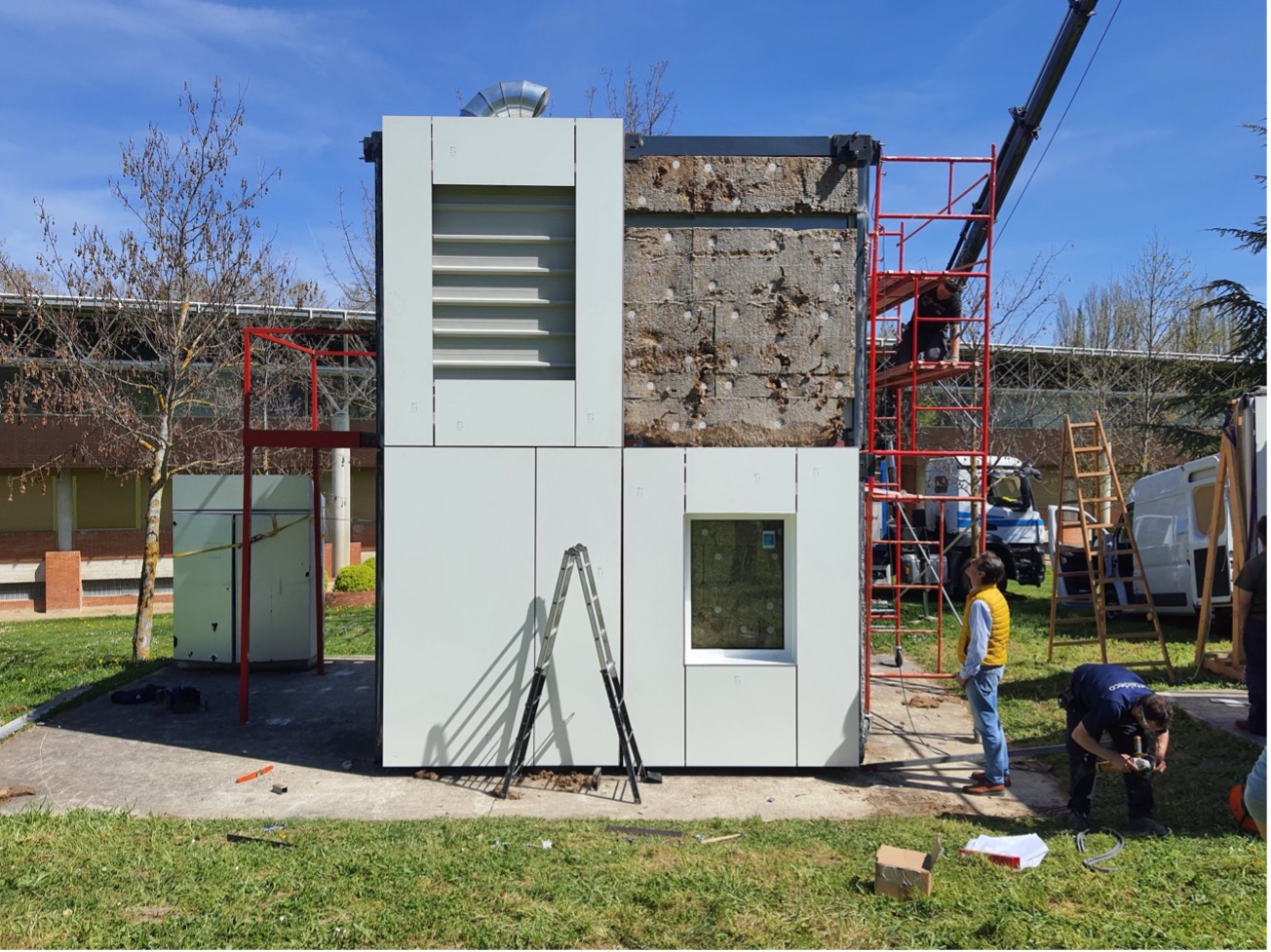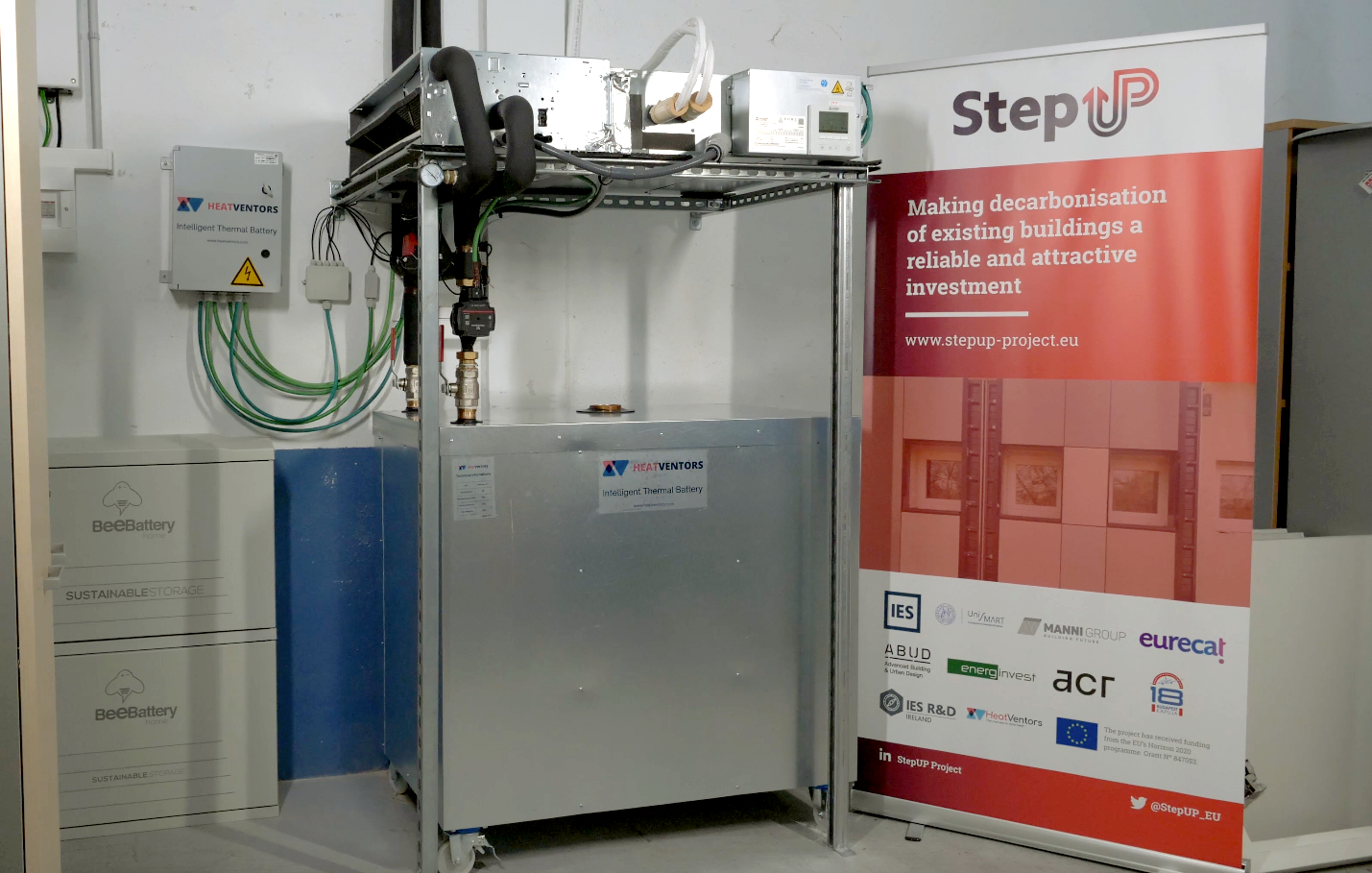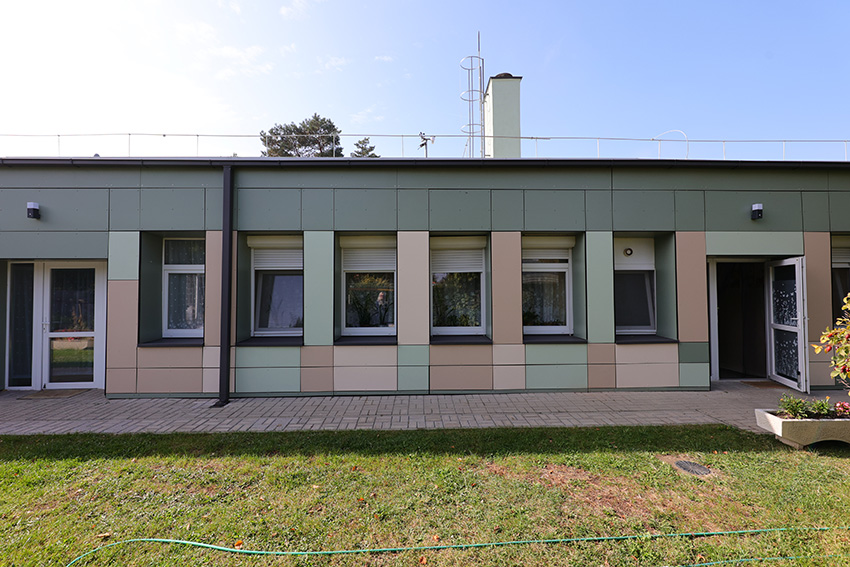
The European StepUP project has developed a new methodology for deep renovation, a set of digital tools and a range of technologies for quick and easy placement, connection and use (Plug & Play) to transform the energy renovation market and drive the decarbonization of existing buildings.
The project aimed “at making building decarbonization a reliable, attractive, and sustainable investment, which also allows for reduced installation time, minimizing inconveniences for building occupants that usually come with energy retrofitting,” says StepUP coordinator Amisha Panchal, from IES. This is of utmost importance in the European Union, where deep renovation is a key action to drastically reduce energy demand and achieve the EU vision of a decarbonised building stock by 2050.
The project team co-created a methodology offering a step-by-step guide for project managers and other stakeholders in a deep renovation process, leveraging the benefits of industrialized energy renovation measures and a data-driven approach in designing and monitoring to guide renovation projects.
In this regard, within the framework of StepUP, two energy retrofit technologies have been developed, including a modular facade envelope and an innovative solution allowing flexible energy consumption.
The façade envelope system uses preassembled modular panels and integrates windows, blinds, and photovoltaic panels, as well as includes spaces for new building conditioning systems.
On the other hand, a thermal battery has been deployed to store and use energy for cooling or heating monitored and optimized through the StepUP data tools. This innovation allows generating energy when it is most economical or efficient, storing it in a tank with Phase Change Materials (PCM), and using the energy when it is less efficient to produce.

Thermal Battery producing heating or cooling energy when it is the most efficient
The project has also focused on digital solutions to improve rehabilitation and energy performance of buildings, including data intelligence solutions for making solid decisions at the design stage. Also, under the framework of the project, solutions to monitor the performance of the building after renovation, in addition to new financing models for optimizing energy, comfort, and cost performance over the life of the building have been developed.
Testing novel technologies for deep renovation in three types of buildings
The technological innovations of the StepUP project have been tested in three types of buildings, which include public buildings, private offices, and R&D facilities.
In Budapest, Hungary, the deep energy renovation intervention in a public kindergarten included the installation of the Plug & Play building façade envelope, the project’s heating solution, roof insulation, the installation of photovoltaic panels, and the change of the heat distribution system.

Plug & Play envelope system integrated in project pilot in Budapest, Hungary
In a specific multifunctional building for testing R&D technologies at the University of Navarra, the façade envelope, together with third-party components, including windows and photovoltaic panels, were installed. A cooling system was also tested at another location in the city of Pamplona, Spain. The impact of both technologies was assessed on the digital twin of a multi-owner apartment block in Pamplona in the same area to correlate the impact of the Plug & Play solutions in residential dwellings.
Moreover, the pilot in Glasgow, Scotland, tested the development of a phased energy renovation plan for an office building and modelled the potential of a co-investment approach for deep renovation improvements. The virtual pilot activities have been aligned with the real pilot tests for the data collection and design phase.
The StepUP project consisted of a consortium of ten partners from six European countries, including two technology transfer institutions (Eurecat, UniSMART),six industrial companies (IES Ltd and IES R&D, Manni Group, HeatVentors, ABUD, Energinvest) and two owners and contractors ACR and Municipality of 18th District of Budapest).
Project key facts
Full Project Title: Solutions and Technologies for deep Energy renovation Processes UPtake
Project Acronym: StepUP
Start: 1 August 2019
End date: 30 April 2024
Budget: 4,941,737,50 €
Coordinator: Integrated Environmental Solutions (IES)
 This project has received funding from the European Union’s Horizon 2020 research and innovation programme under grant agreement no. 847053.
This project has received funding from the European Union’s Horizon 2020 research and innovation programme under grant agreement no. 847053.
This website reflects only the author’s views. The European Climate, Infrastructure and Environment Executive Agency is not responsible for any use that may be made of the information it contains.
